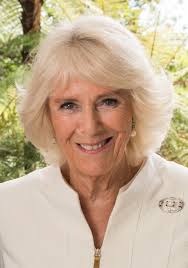Queen Camilla: A New Chapter for the British Monarchy

Introduction
Since her marriage to King Charles III in 2005, Queen Camilla has become a pivotal figure within the British monarchy. As the queen consort, her role has evolved significantly, especially following the passing of Queen Elizabeth II in September 2022. This shift not only marks a personal journey for Camilla but also a new phase for the monarchy itself, where her influence and contributions are increasingly recognised.
The Transition to Queen Consort
Queen Camilla’s transition from the Duchess of Cornwall to Queen Consort has been met with a mix of public sentiment and evolving expectations. Embracing her new title, she has taken on numerous royal duties, championing causes such as literacy, domestic violence awareness, and animal welfare. Her efforts also reflect a modern understanding of the monarchy’s role in addressing contemporary social issues.
Public Engagement and Popularity
Following Queen Elizabeth II’s death, Queen Camilla has increased her public engagements, often appearing alongside King Charles III during royal tours and official events. A poll conducted by YouGov in early October 2023 revealed that public support for her has seen a notable rise, with approximately 63% of respondents viewing her positively. This is a significant shift, especially given the scepticism surrounding her relationship with Charles before their marriage.
Queen Camilla’s Charitable Work
Queen Camilla has made a substantial impact through her charitable work. As a patron of several organisations, she actively promotes literacy, women’s rights, and mental health awareness. For instance, her support for the ‘Reading Room’ initiative aims to encourage reading among children and adults alike. Additionally, her engagement with charities focusing on domestic violence provides a safe platform for victims to find help. Her advocacy is not only a reflection of her personal interests but also a strategic positioning of the monarchy in addressing key societal issues.
Conclusion
Queen Camilla’s increasing visibility and the positive shift in public perception mark a significant, albeit complicated, evolution for the British monarchy. As she continues to develop her role, her influence is likely to expand further in the realms of philanthropy and public engagement. The future of the monarchy, under the leadership of King Charles III and Queen Camilla, appears to be one that is more connected to the people, addressing modern challenges while upholding tradition. Enthusiasts and critics alike will be watching closely as this new chapter unfolds.









